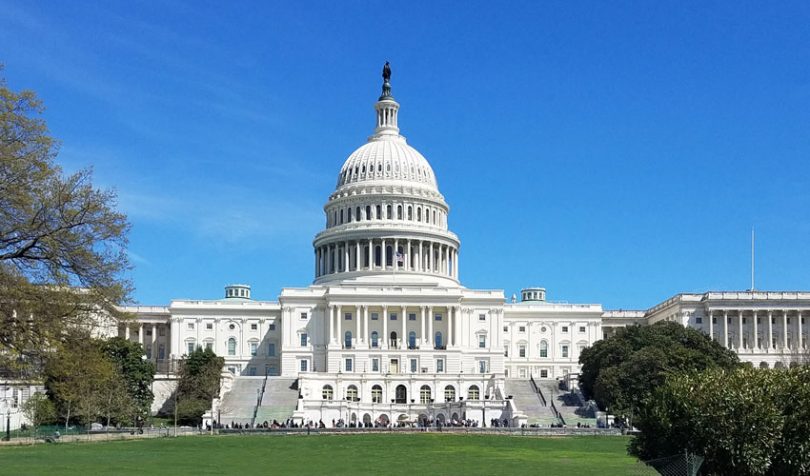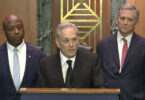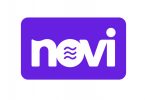Today David Marcus, CEO of Facebook’s Calibra subsidiary, faced two hours of questions from the U.S. Senate Committee on Banking, Housing and Urban Affairs. The session covered both Libra the network and currency and Facebook’s Calibra wallet. Here we will focus on new information that came out in the hearings rather than covering existing ground.
Facebook’s exposure to risk
Senator Jones, a Democrat from Alabama, raised an interesting point. He asked what if the Calibra wallet hosted funds that were used for human trafficking or drugs. Is there a possibility that Calibra and Facebook could become criminal defendants?
“At some point, an innovative prosecutor might look across the table and say ‘you, sir, are contributing to this. You’re an aider and abetter.'” observed Jones. “Are you prepared for that down the road if you don’t do your job?”
Some will argue that Calibra is a separate subsidiary and so Facebook is protected. I’m no lawyer, but under certain circumstances, it is possible to “pierce the veil” of limited corporate liability which could put Facebook’s billions on the line.
Doubtless, Facebook will aim to get insured for that, but it could be pricey. Similarly, Marcus reiterated during the hearings that there will be consumer protections for fraud and account recovery, in a similar way to protection provided by other financial services companies. That too will need insurance.
Libra Governance and a matter of trust
Facebook has repeatedly stated that it is only directing Libra during the initial stages and plans to relinquish control. It points to the plans for 100 Libra Association members with 27 so far. Senator Brown was the first of several senators to be dismissive about the claim.
He said: “You know that only Facebook has access to two billion people. And to say that you are just one of many is simply not true.”
Brown continued referring to Facebook’s recent $5 billion fine: “Facebook has a long track record of abusing user’s trust… Over and over, Facebook has said ‘just trust us’. And every time Americans trust you, they get burned… After all the times Facebook has abused the public’s trust, and you know that, do you think people should trust Facebook with their hard-earned money?”
“Trust is primordial, and we’ve made mistakes in the past. We have been working and continue to work really hard to get better,” Marcus responded. “The reason we designed Libra in such a way that Facebook will only be one among 100 different members of the Libra Association and will have no special privileges, means that you will not have to trust Facebook.”
Later Marcus told Senator Schatz that Libra’s governance charter is a group effort and decisions are being made collegiately. The charter will be made public. But Schatz asserted that other Libra Association members are also in the dark.
He said: “What I’m hearing, and they’re terrified to talk about this publicly, is that members of the consortium actually have lots of questions too, similar to the questions that are being offered on this dais. And they have great reservations about moving forward, but they don’t want to be left out because of Facebook’s market power.”
Zynga all over again?
Farmville was a hugely successful Facebook game for publisher Zynga. It was also a valuable source of early revenue for Facebook. But as VentureBeat put it “when Facebook didn’t need Zynga or any other gaming company to prove it could make money — Facebook cut the cord.”
Blockchains are usually open platforms where developers can add dApps. While Libra is open source, Marcus stated that there would need to be some process to review dApps before publishing them. That’s to protect consumers. Combined with the Senators’ observations that Facebook is the only one of the 100 Libra members with two billion users, developers may have some concerns.
Jurisdictional issues
Senator Sinema asked a very tricky question. “An unsavoury app developer that’s based in Pakistan utilizes an exchange that’s based in Thailand to rip off an Arizonan who’s using a wallet that was built in Spain. So they steel all of their Libra and that of course was minted by an Association that’s based in Switzerland. Which law enforcement or governmental agency in which country does the Arizonan call to seek his or her financial recourse?”
Marcus response was: “The answer to that is your constituents will likely use a U.S. based wallet provider that will have consumer protections and will make your constituents whole.”
The issue that Senator Sinema raised goes to the heart of the multi-jurisdiction nature of decentralized networks. It’s one that Facebook will find challenging to address.
A network for the benefit of U.S. companies?
One Marcus response may get an adverse reaction in other jurisdictions. He was asked what Switzerland offered that the U.S. doesn’t.
Marcus said that Switzerland was chosen because Libra is targeting international users, and Switzerland is the home of many respected international organizations. But then it got interesting.
He said: “The reality though is if you look a the current composition of the Libra Association members, those are mostly American companies. Calibra is an American subsidiary of a large American company which will be licensed and operate in the U.S. And I think that the beneficiaries in terms of companies of the Libra network will likely be American companies under the American jurisdiction, and with proper regulatory oversight within the U.S.”
He may have been talking to regulatory concerns. But these comments could be interpreted as America looking to extend its dominance.
Why do non-profit members earn dividends?
Senator Toomey asked some insightful questions but was supportive about Libra in principle. “I think we should be exploring this and considering the benefits as well as the risks and take a prudent approach,” said Toomey. “But to announce in advance that we have to strangle this baby in the crib, I think is wildly premature.”
He asked how Libra was a non-profit, yet the Libra Association members and not users could benefit from dividend income from potentially substantial interest. Marcus didn’t adequately address this but stated that the plan is not for all of the revenue to go back to investors. “We will need to find a way over time to create new pools of incentive that go back to people and businesses using the Libra network.”
Consent and data sovereignty
Toomey asked a direct question about whether the plan was to seek consumer consent in future so that consumer payment data could be commercialized. Marcus replied, “No, this is not the intention at all.” He reiterated Facebook’s business model is to enable ecommerce for 90 million small businesses on the platform, which will encourage advertising. And in future, it plans to extend the financial services offered by Calibra.
When Toomey asked again whether Facebook will never seek consent, Marcus’ response was less specific. “I can’t think of a reason right now for us to do this,” he said.
At the end of the session, Senator Crapo tried to dig into exactly what data Calibra would have. Marcus said: “The mindset in which we’re establishing the product and the privacy of the product is that it will only collect the information that is required to offer the service. But also to keep accounts safe, which is really important when it comes to money. Especially because we will have strong customer protection programs. So we will need to protect accounts and relevant data is quite helpful for protecting consumer’s accounts.”
When Crapo asked if blockchain could enhance privacy protection, Marcus responded that if people run software on their own, they can be their own “sovereign” of the data. “It’s a question of choice for consumers. On one side, they can have consumer protections and the other they can be self-sovereign,” he said. The Facebook executive appears to infer it’s a binary choice of centrally controlled data and consumer protection against self-sovereign data. But it doesn’t have to be that way.
After more than two hours, Marcus started to look a bit tired. And he has to do it again tomorrow for the House of Representatives Financial Services Committee which is likely to be even more antagonistic.






